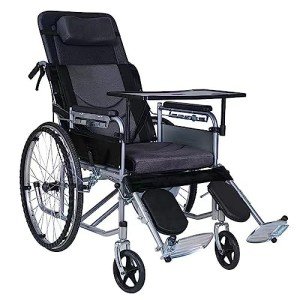Bariatric Transport Wheelchair
Designed to be pushed by caretakers, transport chairs include smaller front wheels and larger rear wheels. They are a popular option for users with restricted mobility who can not stroll separately.
When shopping for a lightweight bariatric transport wheelchair, think about the user's requirements and how they'll use the chair. Likewise, determine any entrances and other areas the chair will travel through.
Seating
lightweight bariatric wheelchair feature a big 22 to 36 inch wide seating area that accommodates extra-large users. The chair seat is made from breathable nylon and comes with padded arms that can be gotten rid of and swing-away footrests. Unlike standard wheelchairs, which are ideal for average body weights, bariatric chairs have actually heavier frames constructed from strengthened materials and larger rear wheels that make it much easier to push them. Speak to a mobility professional to read more about your options and to identify which kind of wheelchair is ideal for you. Bariatric wheelchairs are frequently covered by insurance providers like Medi-Cal if your medical condition satisfies their coverage criteria.
Frame
Bariatric transport wheelchairs use durable frames made of reinforced materials like steel and have broader seats than basic wheelchairs. They are designed for individuals with higher body weights and can hold an optimum weight capacity of 700 pounds. They also have larger rear wheels, that make them simpler for caregivers to push. Bariatric wheelchairs are often covered by insurance coverage such as Medi-Cal, depending on the patient's specific medical requirements and medical diagnosis. Ask a health care professional or mobility specialist to help pick the right chair for your special requirements.
Click on this link for more information. Medline Bariatric Transport Chair. Crimson Hammertone Frame.
Weight

While standard wheelchairs have lighter frames and smaller sized wheels, bariatric transport chairs include heavier-duty products and a broader seat to accommodate users who weigh more than average. Since of their specialized design and building, they tend to cost more than basic chairs. Nevertheless, some insurance programs like Medicare and Medi-Cal may cover the cost of these chairs if the user satisfies the criteria for coverage. To read more about which chair is right for you, contact a rehabilitation professional today.
Wheels
Bariatric transport wheelchairs have bigger rear wheels than basic designs, making them much easier to push. They're often utilized in medical facilities and home settings, where the chair is pushed by caretakers. The extra-large rear wheels also allow the chairs to navigate a variety of surface, including outdoors.
Basic wheelchairs usually have smaller sized wheels, that make them more maneuverable indoors but less ideal for everyday usage on outside streets and other surfaces. Mobility experts recommend speaking with a doctor or mobility professional to select the very best wheelchair for your particular needs and goals.
This durable, nylon strengthened steel transport chair supports clients approximately 500 pounds and includes a large 22" seat, cushioned desk-length armrests, swing-away footrests and hand brakes. The 12-inch rear wheels guarantee a smooth ride in any environment.
